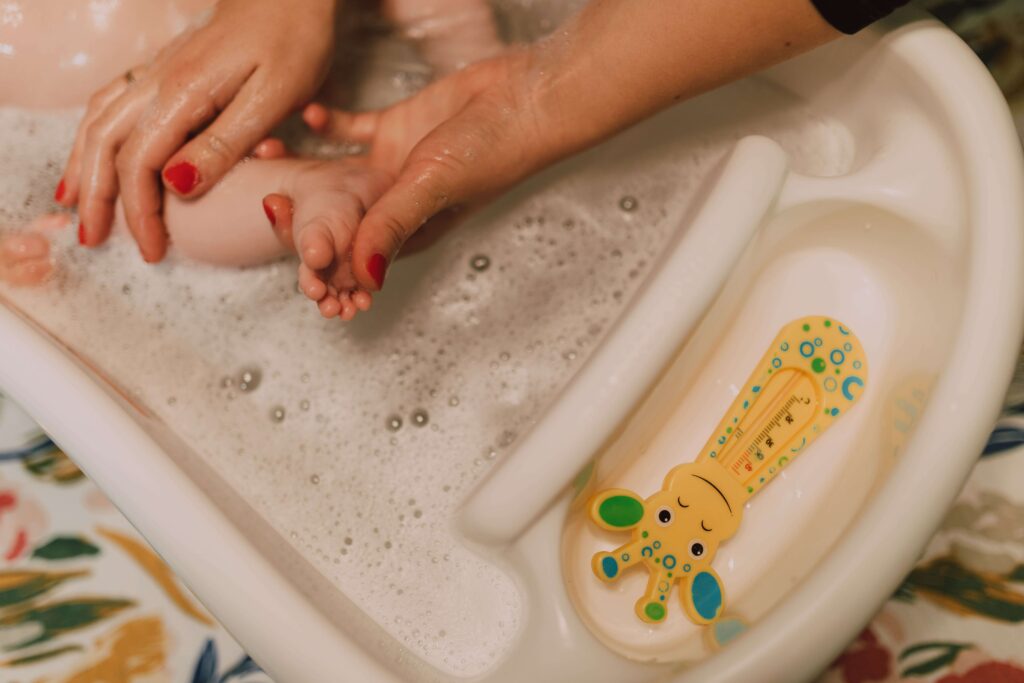Congratulations on the arrival of your new baby! Becoming a parent is one of the most exciting and life-changing experience and rewarding experiences in life. But it can also be overwhelming, especially for first-time parents.

The good news is that with a little knowledge and preparation, you can confidently navigate the early days of infant care. In this article, we’ll share 10 Must-Know Infant Care Tips for New Parents to help you give your little one the best start in life.
1. Feeding Basics:
Whether you choose breastfeeding or formula feeding, make sure your baby is getting enough nourishment. Newborns need to eat frequently, so don’t wait for them to cry to feed them. Offer your baby the breast or bottle every 2-3 hours, or when they show signs of hunger. Follow a feeding schedule, but also pay attention to your baby’s cues for hunger and fullness.

2. Diapering Skills:
Keep your baby clean and comfortable by changing diapers regularly. Use diaper cream as a preventive measure against diaper rash. You have to know when the diaper is wet.
- Pat, squeeze or pinch the front of the diaper.
- Carry out a quick sniff of your child’s diaper.
- Check the butt or thigh area of the diaper.
- Look for a wetness indicator, which is usually a yellow line that runs along the outside of the diaper and alerts the parent that the diaper is wet by changing to a blue color

3. Safe Sleep Practices:
Newborns need around 16-18 hours of sleep per day. Create a bedtime routine to help your baby wind down and fall asleep. Read more about How to Get Your Infant to Sleep Through the Night

Swaddle your baby. Swaddling can help to calm and soothe your baby. Wrap your baby snugly in a blanket, leaving their arms at their sides.
Always place your baby on their back to sleep to reduce the risk of sudden infant death syndrome (SIDS). Use a firm crib mattress with a fitted sheet and avoid loose bedding.
4. Bathing Basics:
Bathe your baby 2-3 times a week, using mild baby soap and lukewarm water. Support your baby’s head and neck during bath time.

5. Bonding and Interaction:
Skin-to-skin contact, breastfeeding, and responsive parenting are all great ways to bond with your baby. Skin-to-skin contact is essential for bonding; cuddle your baby often. Engage in eye contact, talk, and sing to your baby to stimulate their development.

6. Recognize Cues:
Babies can communicate with us through their body language. For example, if your baby is fussy and turning their head away, they may be overstimulated.
Learn to interpret your baby’s cues for hunger, discomfort, or fatigue. Respond promptly to build trust and meet their needs.
7. Fever and Illness:
Contact a pediatrician if you suspect your baby is unwell. Understand the signs of illness in infants, such as fever, excessive fussiness, or difficulty breathing.
8. Baby Proofing:
Baby-proof your home as your infant becomes more mobile. Cover electrical outlets, secure furniture, and install safety gates.
Babyproof your home to prevent accidents. This includes putting away sharp objects, cords, and other hazards. Never leave your baby unattended on high surfaces, such as changing tables.
9. Routine and Consistency:
Establish a daily routine to help your baby feel secure and predict their needs. Be consistent with bedtime and naptime routines to promote healthy sleep patterns.
10. Self-Care for Parents:
It’s important to take care of yourself physically and emotionally when you’re a new parent. Get enough sleep, eat healthy foods, and exercise regularly. Take breaks and ask for help when needed. Parenting can be exhausting. Prioritize your own well-being to be the best parent you can be.
Conclusion of our baby care tips.
Welcoming a new baby into your life is a beautiful journey, filled with moments of joy and challenges. By following these ten essential infant care tips, you can build a strong foundation for your baby’s well-being and create a nurturing environment for them to thrive.
Remember that every baby is unique, so trust your instincts and enjoy this precious time with your little one. If you ever have questions or concerns, don’t hesitate to reach out to your pediatrician or a trusted healthcare professional.


